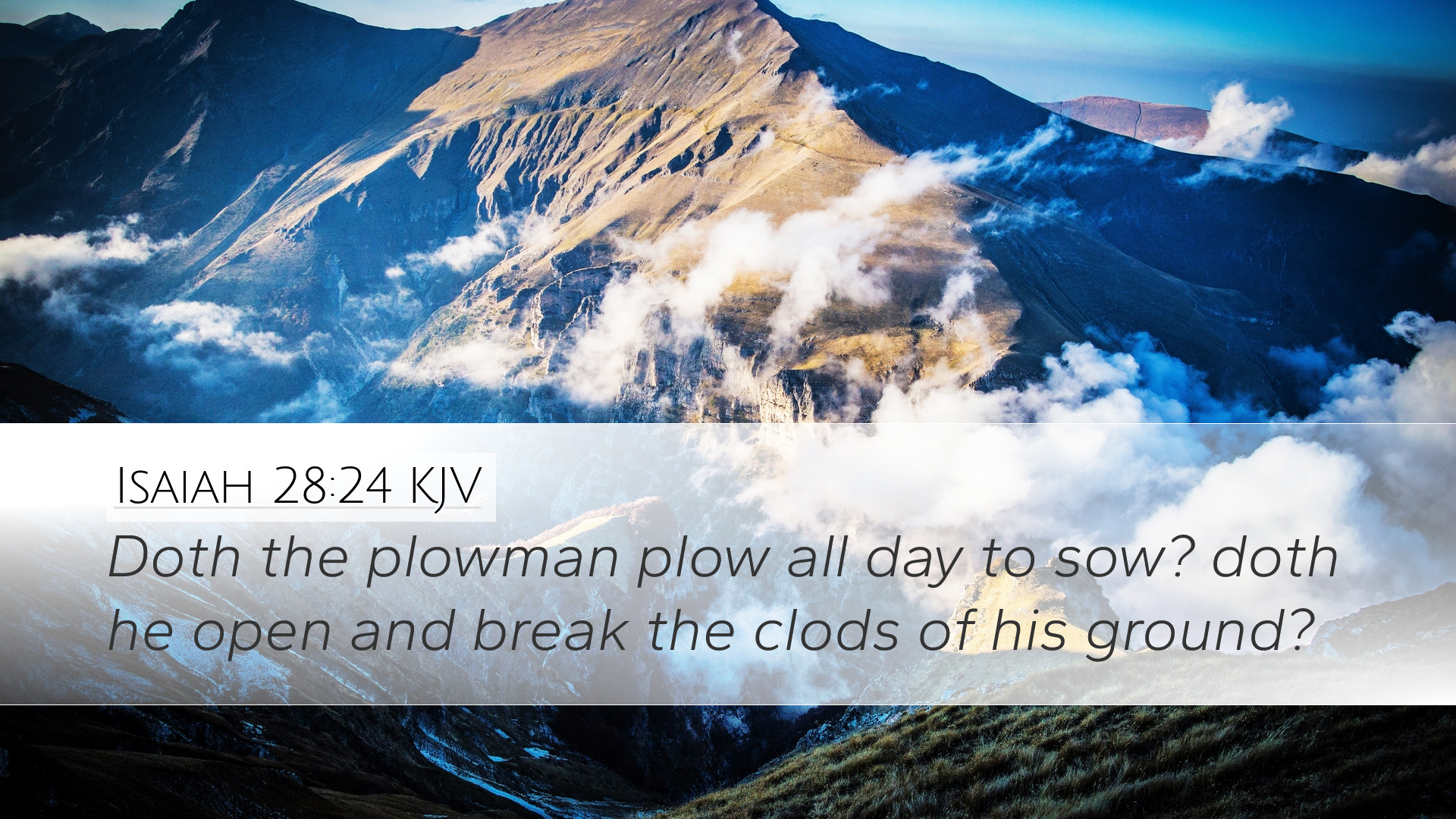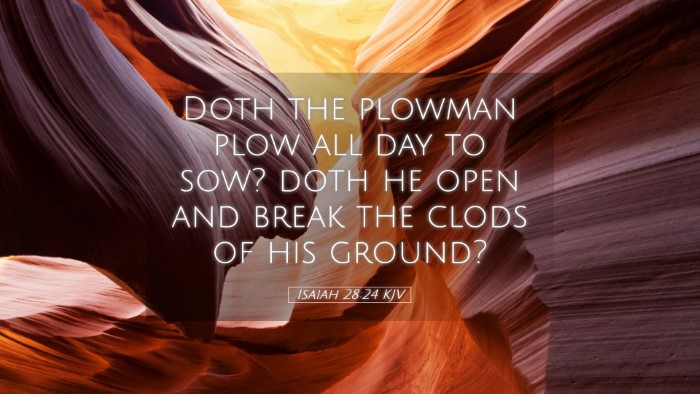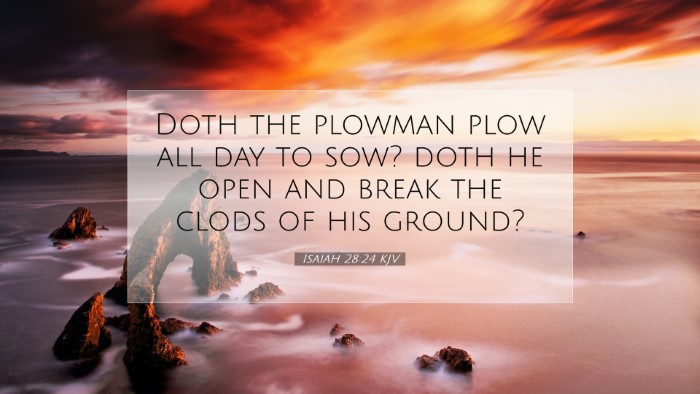Commentary on Isaiah 28:24
Verse: "Doth the plowman plow all day to sow? Doth he open and break the clods of his ground?" (Isaiah 28:24, KJV)
Introduction
The verse Isaiah 28:24 serves as a pivotal reflection within the broader context of God's judgments and His expectations of the people of Israel. It presents an agricultural metaphor that illustrates divine wisdom in the ordering of labor. Commentators throughout history have drawn from this passage to highlight themes of diligence, purpose, and divine order in the natural world.
Exegesis and Context
Isaiah’s prophetic message comes at a time when Israel is faced with impending judgment due to their disobedience and reliance on false security. The agricultural metaphor signifies more than mere farming; it speaks to the spiritual cultivation necessary for God's people.
- Matthew Henry emphasizes the art of agriculture as a portrayal of God's methodical governance. He suggests that just as a farmer does not endlessly plow but follows a sequence of sowing, so too must Israel recognize divine timing and purpose.
- Albert Barnes notes that this verse interrogates the senselessness of constant toil without fruitful outcome. He elucidates how God’s strategy with His people includes cultivation—pointing to the importance of preparing the heart for spiritual harvest.
- Adam Clarke remarks that there’s a deliberate process in agricultural practices which is mirrored in the spiritual life. He asserts that farmers must assess the condition of the soil (i.e., the heart) before sowing, indicating the necessity of repentance before divine blessings can be reaped.
Understanding Agricultural Metaphors
The usage of agricultural imagery in the Bible is profound. This metaphor illustrates the importance of preparation and expectation. Each phase of the farmer's labor reflects stages in the life of Israel’s spirituality:
- Preparation: Just as the land must be prepared, the people of God must undergo a transformation of heart to be ready to hear and respond to God's word.
- Timing: The reference to plowing and sowing highlights that every action has its appointed time. The farmers know not to plow every day without moving forward to sowing, symbolizing the need for God’s timing in our deliverance and growth.
- Feedback: Wasteful labor yields no fruit. The parallel drawn warns Israel against exhausting efforts without seeking divine wisdom and guidance.
Theological Implications
From a theological perspective, Isaiah 28:24 invites extensive reflection on God’s methods of cultivation—both at a personal and corporate level:
- God as Gardener: The imagery of God as the ultimate gardener indicates His active role in cultivating hearts and nations. He prunes and prepares His people for a fruitful existence.
- Purposeful Living: Believers can draw principles of diligence and intentionality in their spiritual walk. Just as the farmer is purposeful in his labor, Christians are called to align their efforts with God’s plans.
- Harvest Expectation: There is a theological assurance that God desires fruitfulness in His faithful ones. While the process of growth can be tedious, the scripture reassures believers that a harvest will come.
Application for Pastors and Theologians
Pastors and theologians may draw practical applications from this verse:
- Preaching: When preaching, there should be intentionality in building up the community of faith rather than relying solely on repetitive or shallow messages that may not lead to spiritual maturity.
- Discipleship: Emphasizing the process of discipleship, where individuals are nurtured, prepared, and equipped serves as a parallel to the plowing and sowing depicted in this verse.
- Encouragement: Encouraging fellow believers to remain patient and steadfast in their faith, reminding them that while the process may seem unending, God is faithful to bring about growth and harvest in due time.
Conclusion
Isaiah 28:24 transcends the bounds of mere agricultural observation. It encompasses profound religious truths about the nature of God’s work among His people. As we ponder this passage, it becomes clear that God desires our transformation, urging us toward effective labor in His vineyard.


